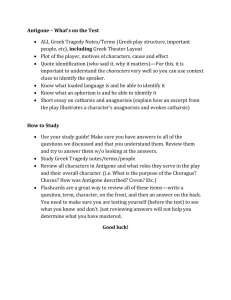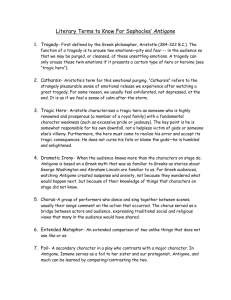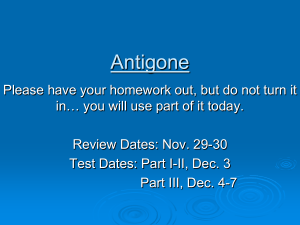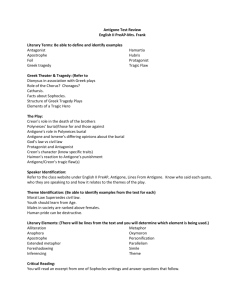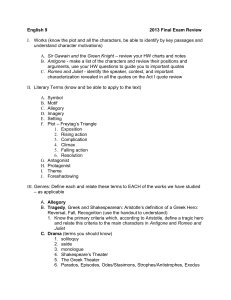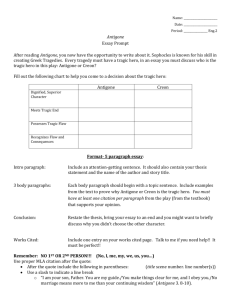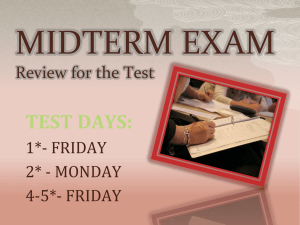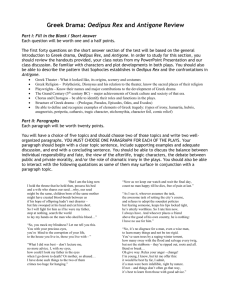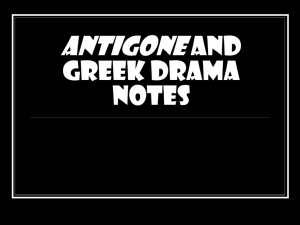1. Who wrote Antigone? 2. Who is the new king? 3. Who defies the
advertisement
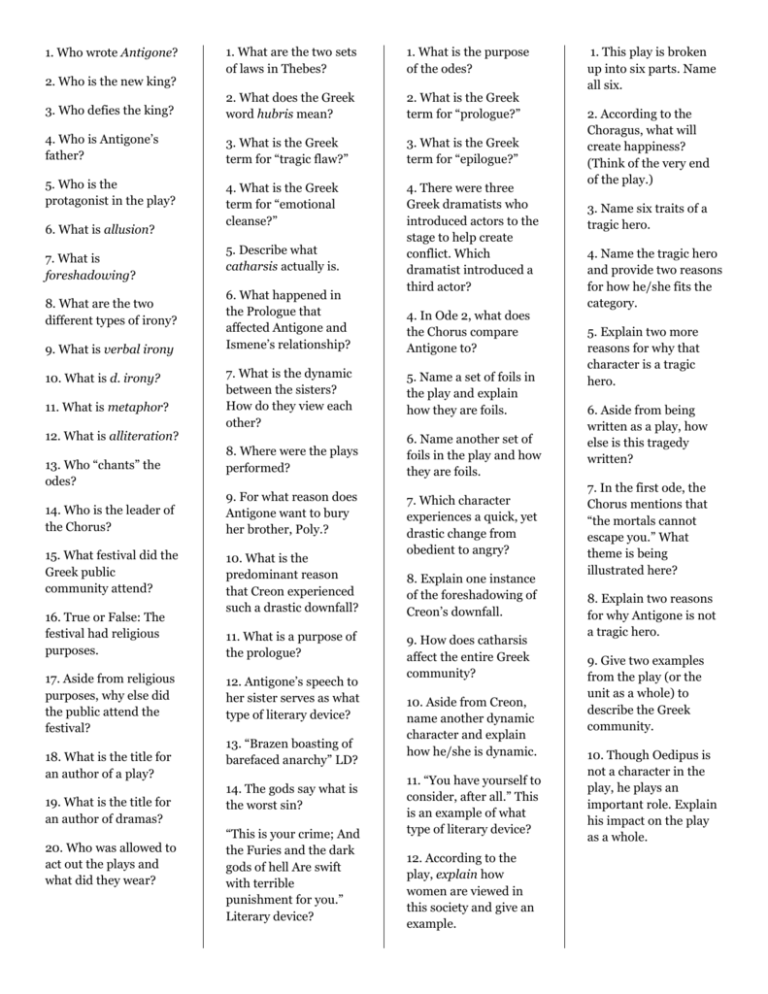
1. What are the two sets of laws in Thebes? 1. What is the purpose of the odes? 3. Who defies the king? 2. What does the Greek word hubris mean? 2. What is the Greek term for “prologue?” 4. Who is Antigone’s father? 3. What is the Greek term for “tragic flaw?” 3. What is the Greek term for “epilogue?” 5. Who is the protagonist in the play? 4. What is the Greek term for “emotional cleanse?” 4. There were three Greek dramatists who introduced actors to the stage to help create conflict. Which dramatist introduced a third actor? 1. Who wrote Antigone? 2. Who is the new king? 6. What is allusion? 7. What is foreshadowing? 8. What are the two different types of irony? 9. What is verbal irony 10. What is d. irony? 11. What is metaphor? 12. What is alliteration? 13. Who “chants” the odes? 14. Who is the leader of the Chorus? 15. What festival did the Greek public community attend? 16. True or False: The festival had religious purposes. 17. Aside from religious purposes, why else did the public attend the festival? 18. What is the title for an author of a play? 19. What is the title for an author of dramas? 20. Who was allowed to act out the plays and what did they wear? 5. Describe what catharsis actually is. 6. What happened in the Prologue that affected Antigone and Ismene’s relationship? 4. In Ode 2, what does the Chorus compare Antigone to? 7. What is the dynamic between the sisters? How do they view each other? 5. Name a set of foils in the play and explain how they are foils. 8. Where were the plays performed? 6. Name another set of foils in the play and how they are foils. 9. For what reason does Antigone want to bury her brother, Poly.? 10. What is the predominant reason that Creon experienced such a drastic downfall? 11. What is a purpose of the prologue? 12. Antigone’s speech to her sister serves as what type of literary device? 13. “Brazen boasting of barefaced anarchy” LD? 14. The gods say what is the worst sin? “This is your crime; And the Furies and the dark gods of hell Are swift with terrible punishment for you.” Literary device? 7. Which character experiences a quick, yet drastic change from obedient to angry? 8. Explain one instance of the foreshadowing of Creon’s downfall. 9. How does catharsis affect the entire Greek community? 10. Aside from Creon, name another dynamic character and explain how he/she is dynamic. 11. “You have yourself to consider, after all.” This is an example of what type of literary device? 12. According to the play, explain how women are viewed in this society and give an example. 1. This play is broken up into six parts. Name all six. 2. According to the Choragus, what will create happiness? (Think of the very end of the play.) 3. Name six traits of a tragic hero. 4. Name the tragic hero and provide two reasons for how he/she fits the category. 5. Explain two more reasons for why that character is a tragic hero. 6. Aside from being written as a play, how else is this tragedy written? 7. In the first ode, the Chorus mentions that “the mortals cannot escape you.” What theme is being illustrated here? 8. Explain two reasons for why Antigone is not a tragic hero. 9. Give two examples from the play (or the unit as a whole) to describe the Greek community. 10. Though Oedipus is not a character in the play, he plays an important role. Explain his impact on the play as a whole.


